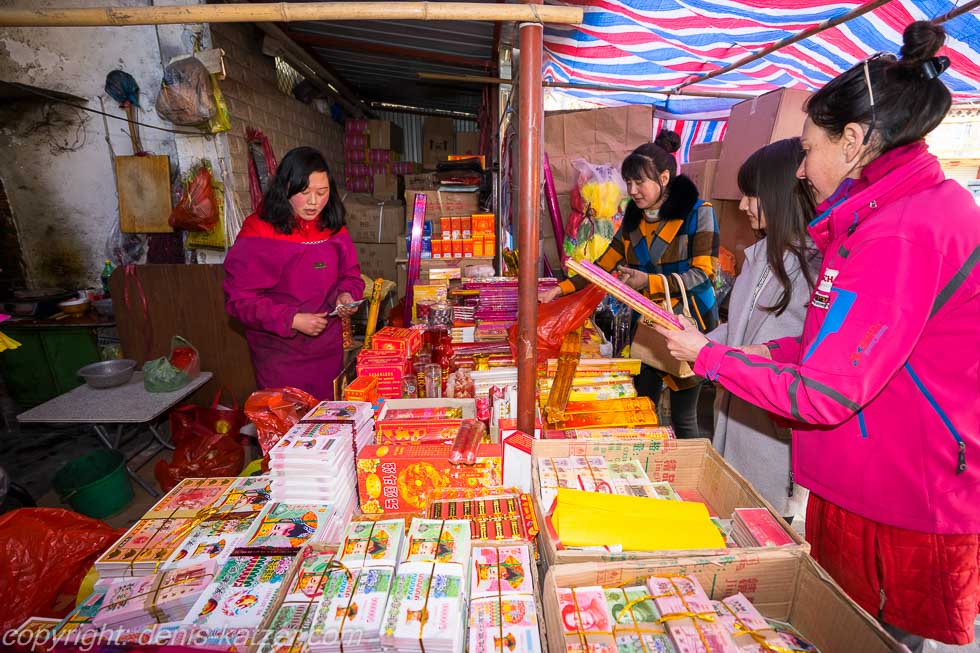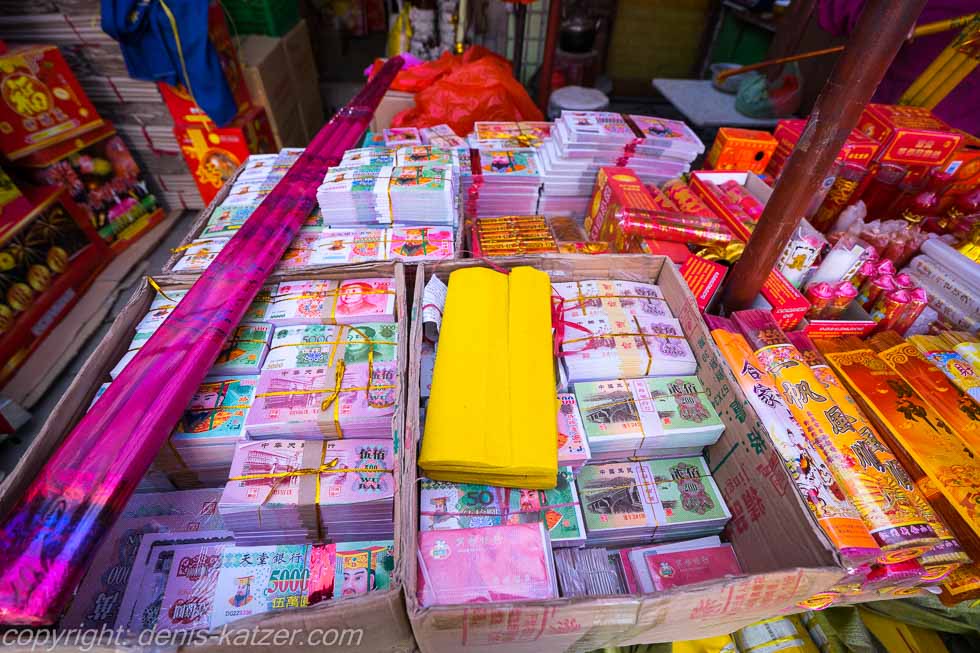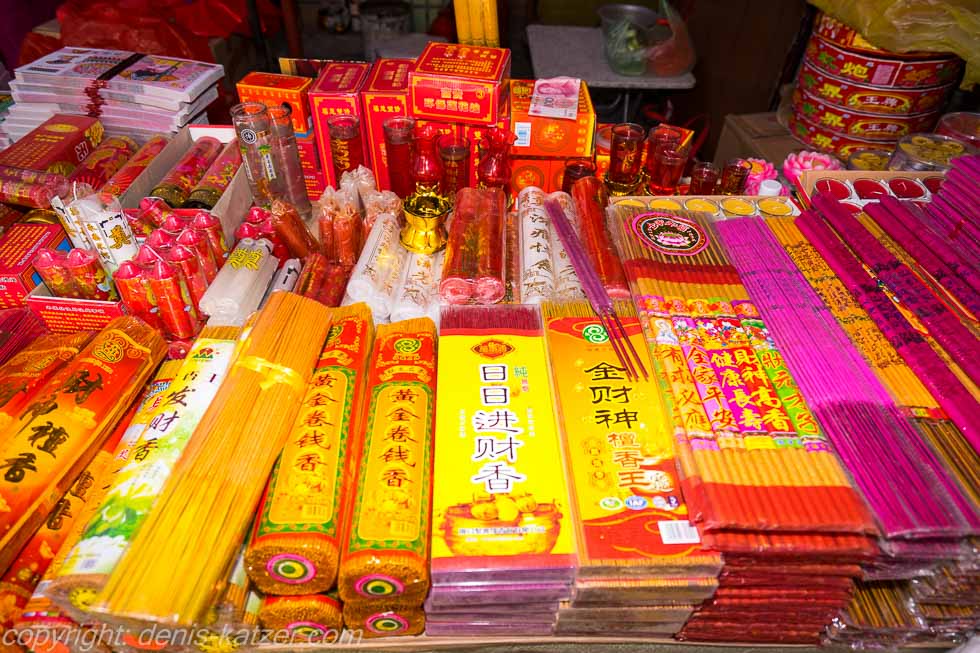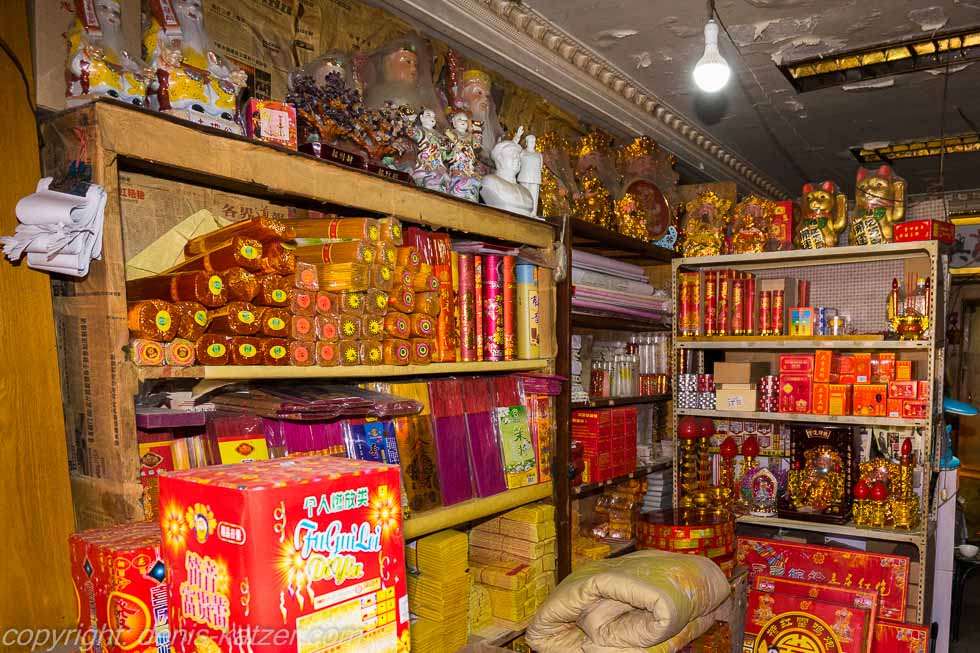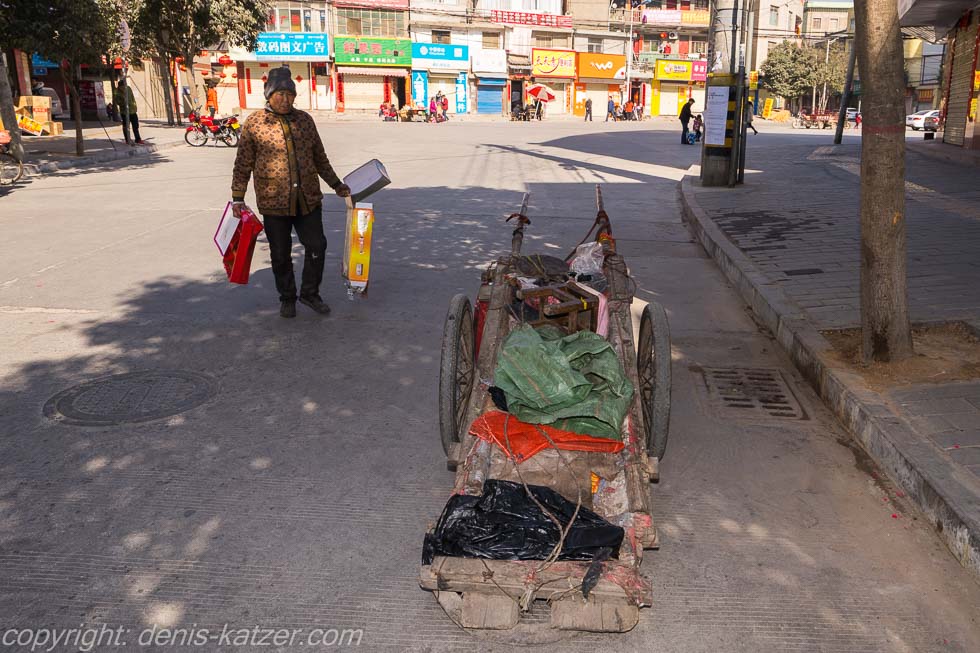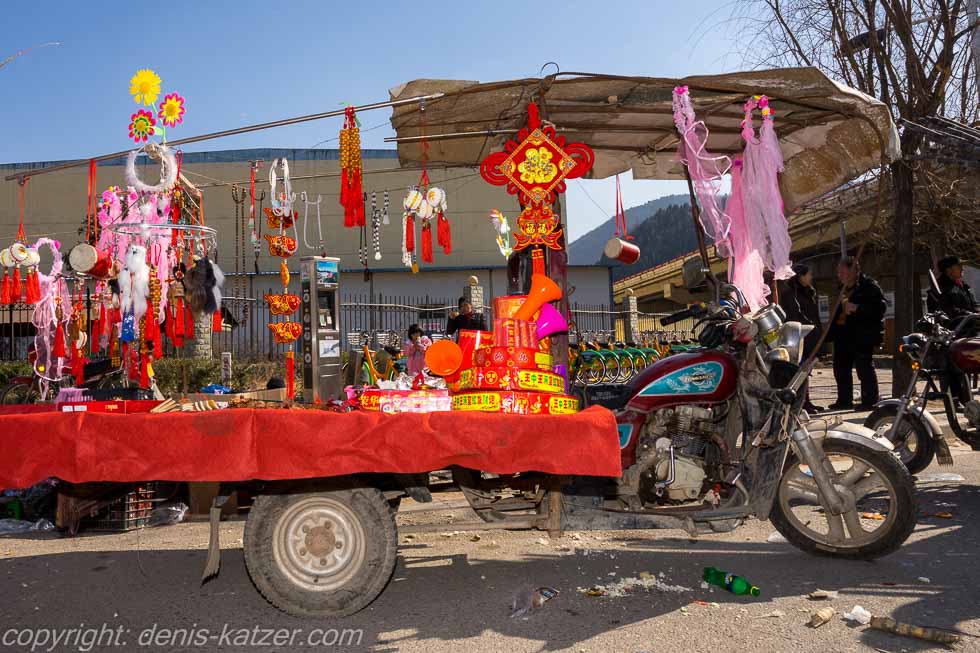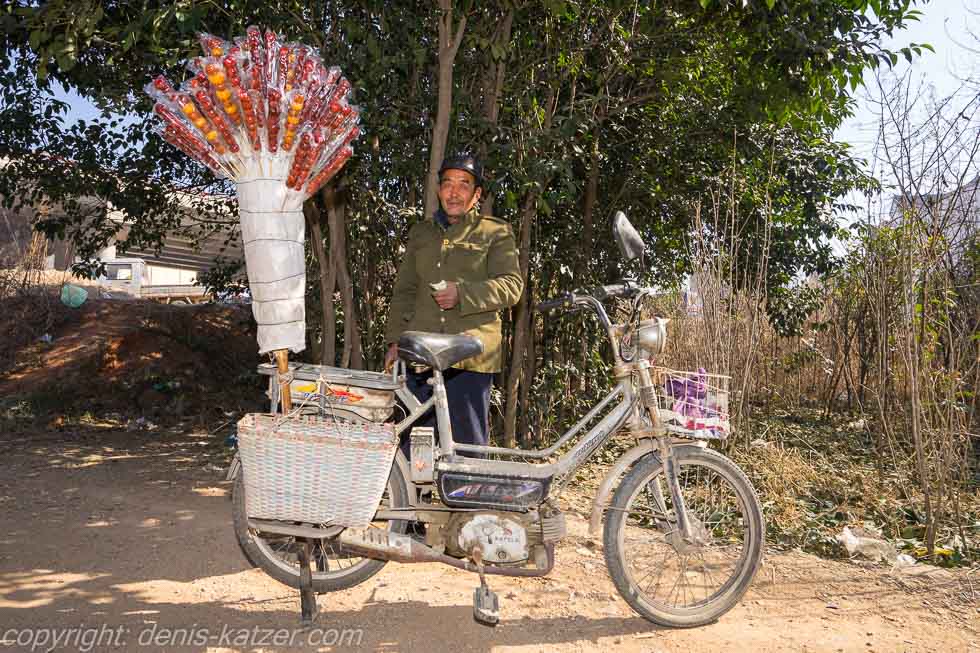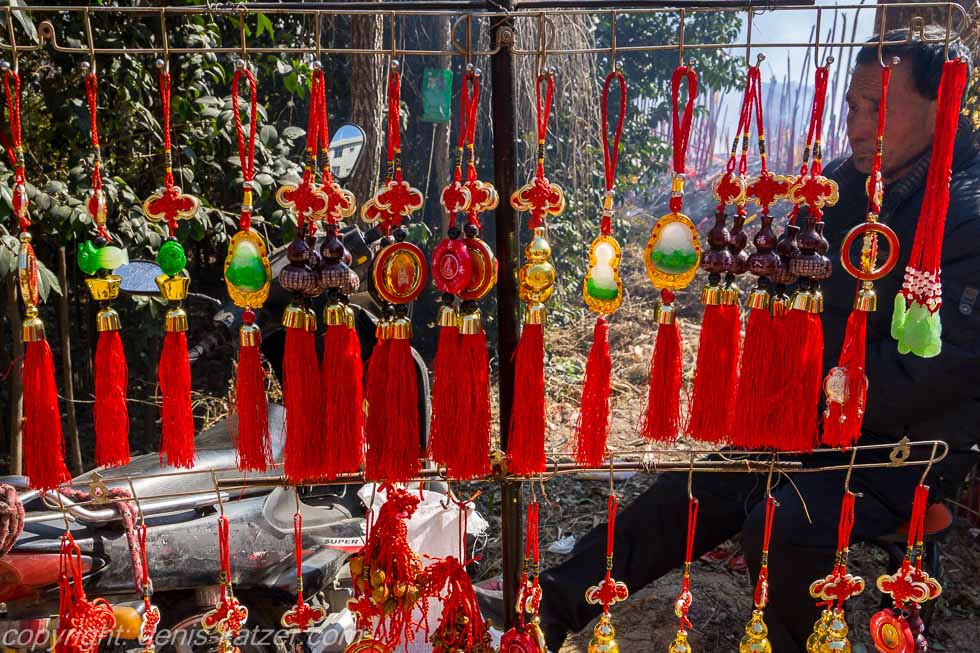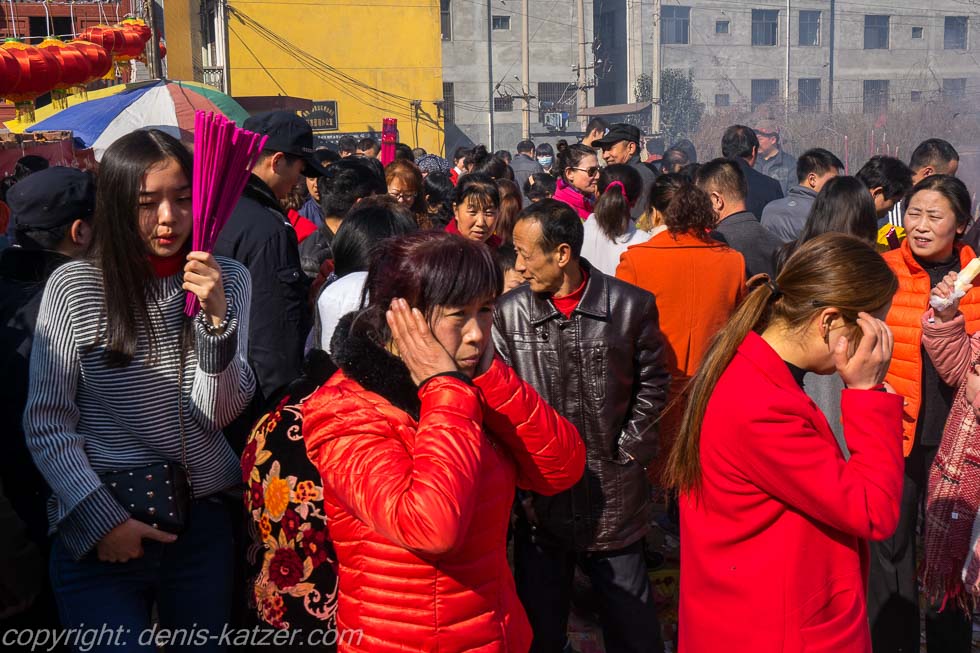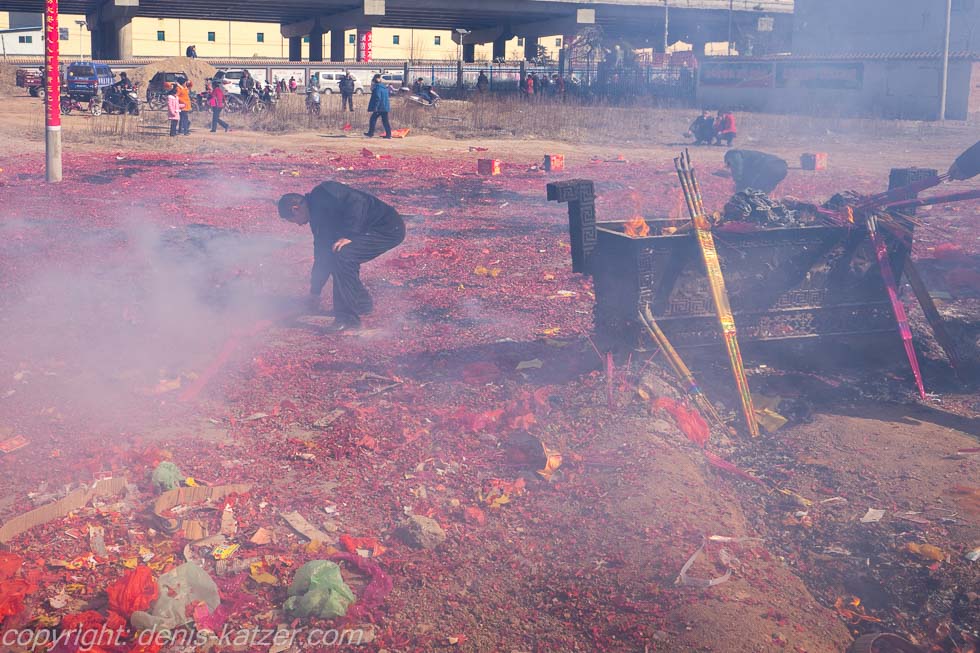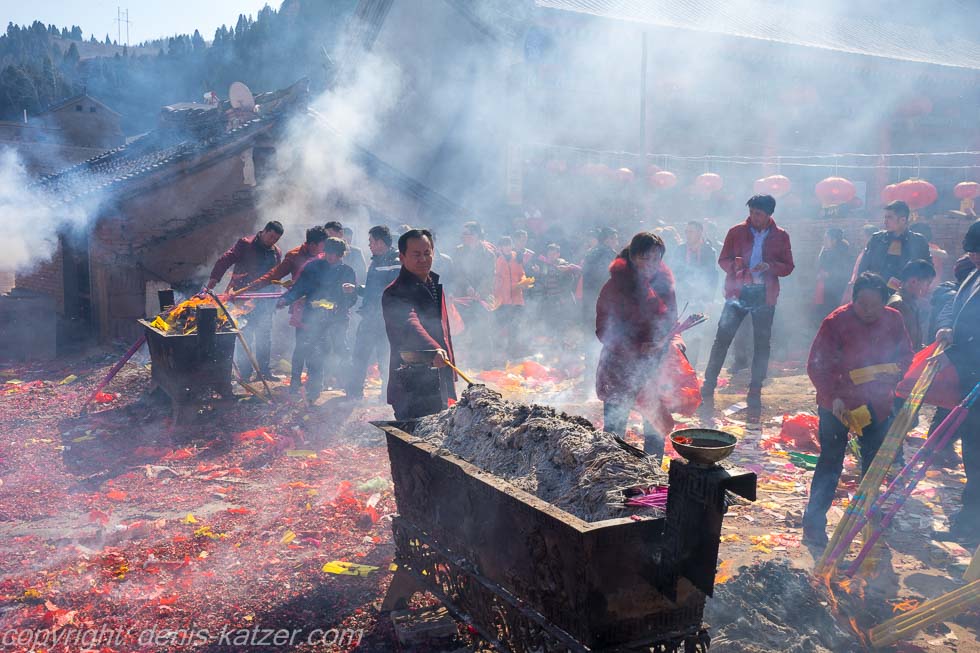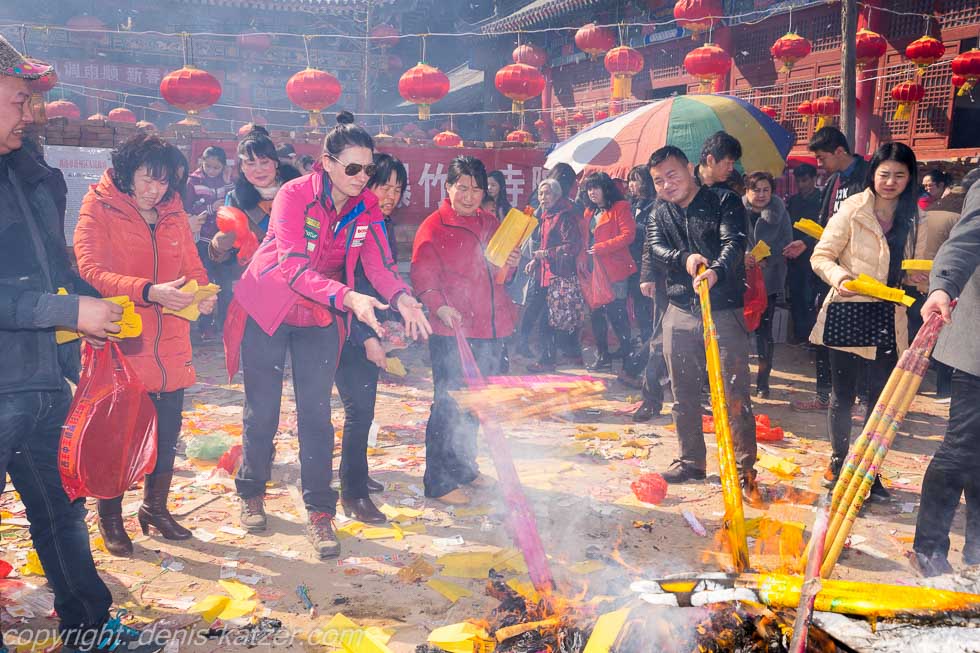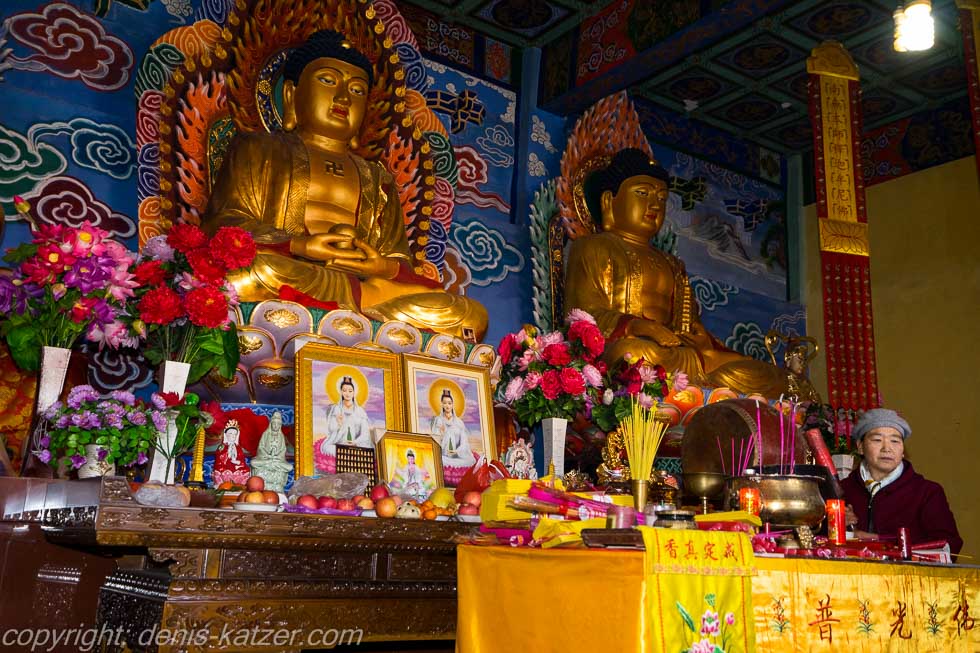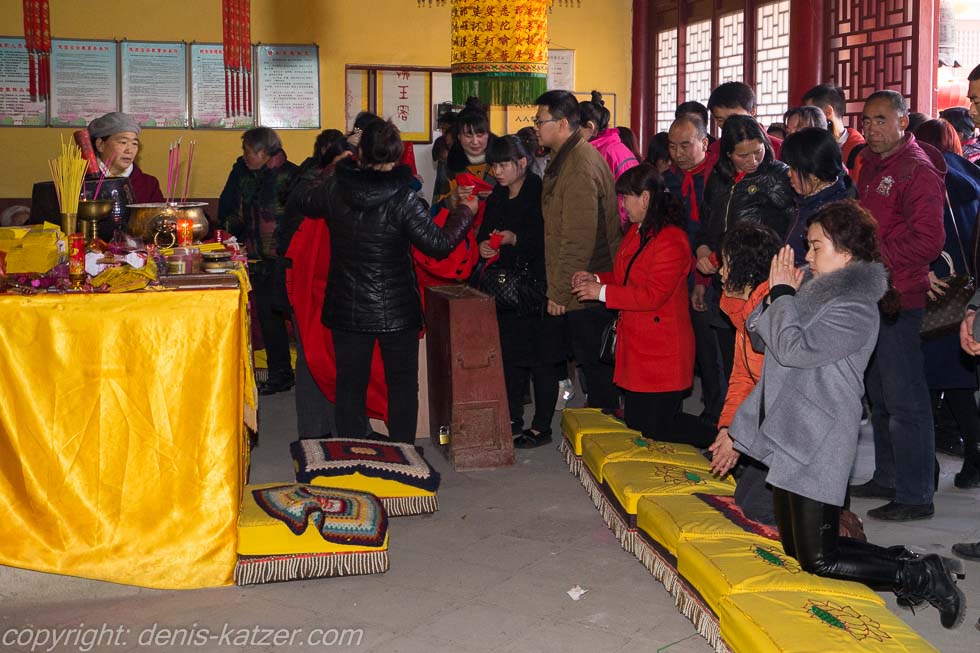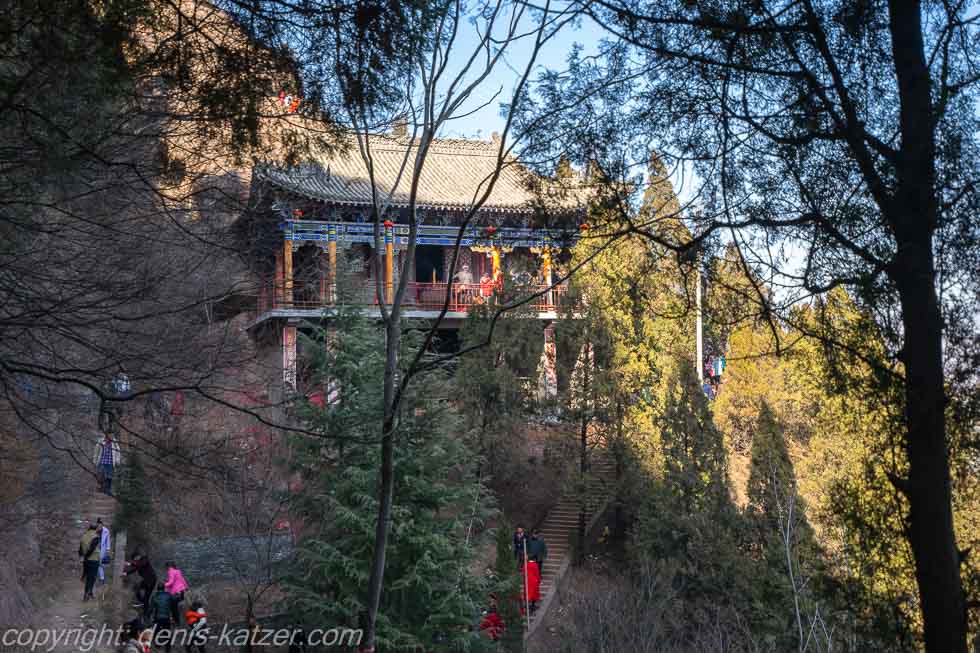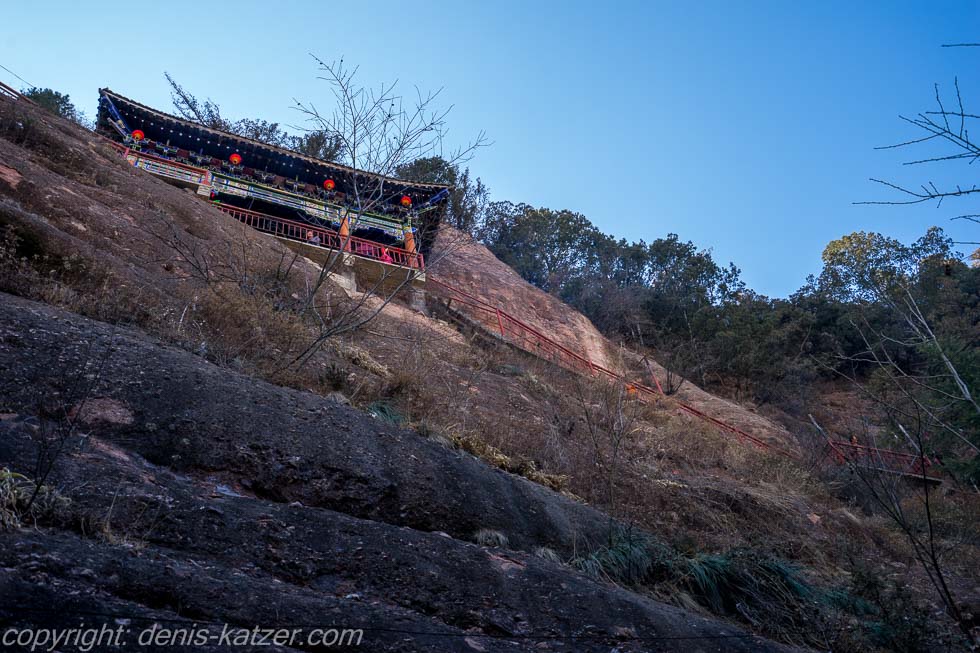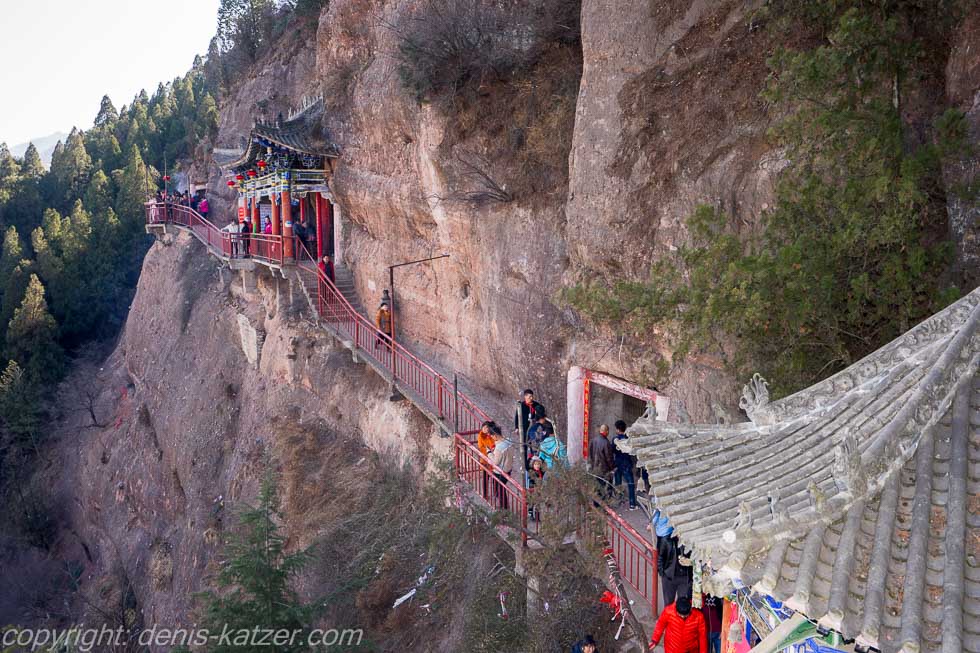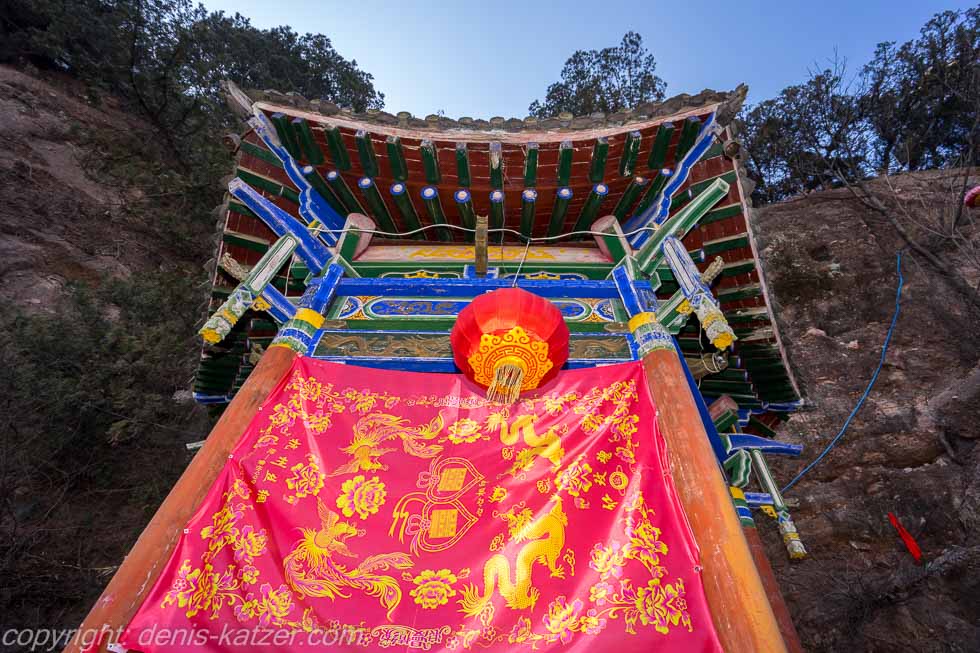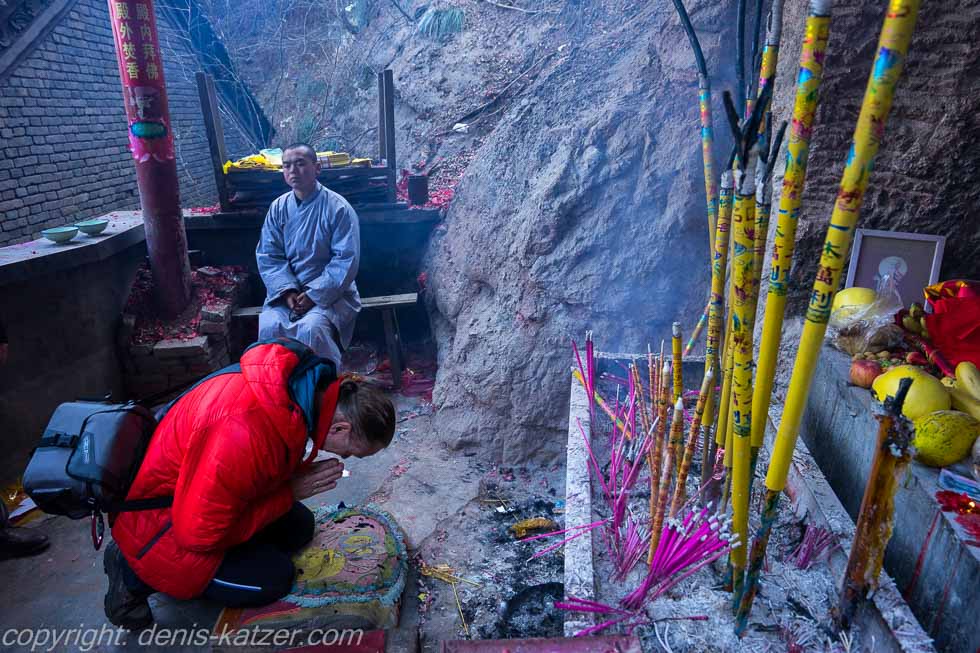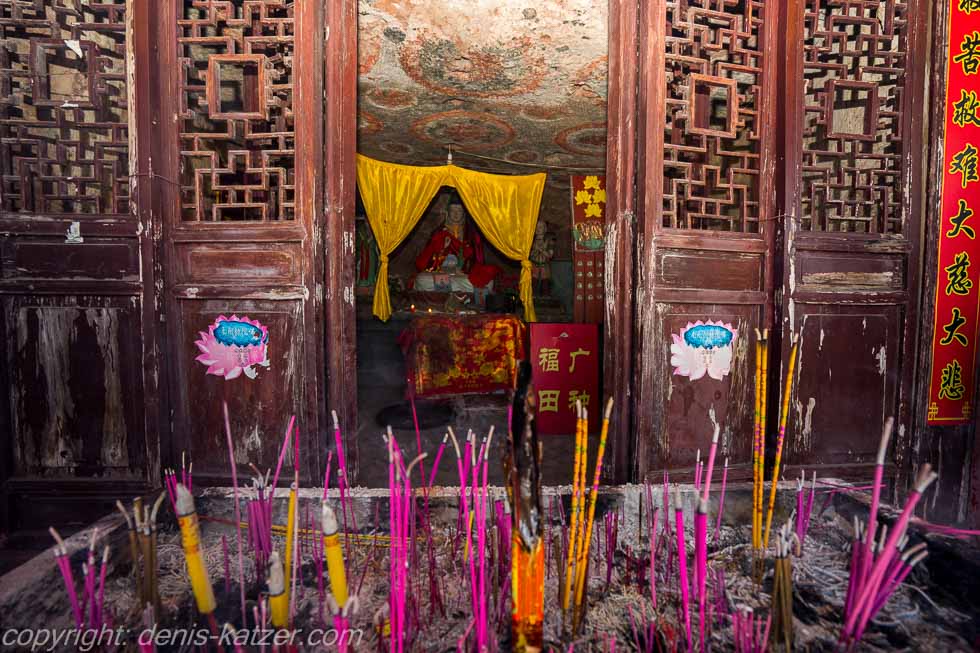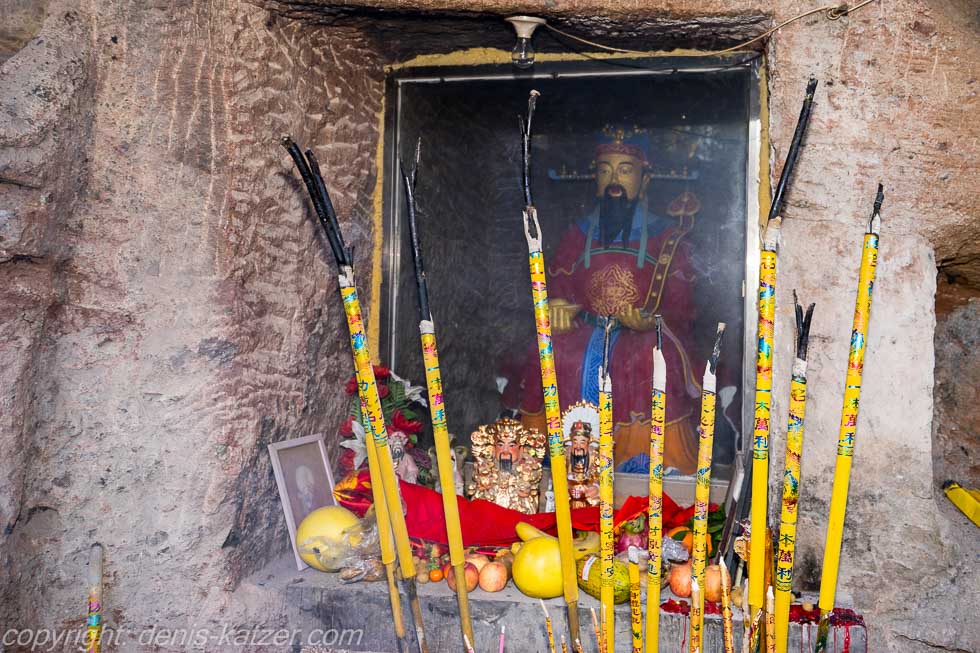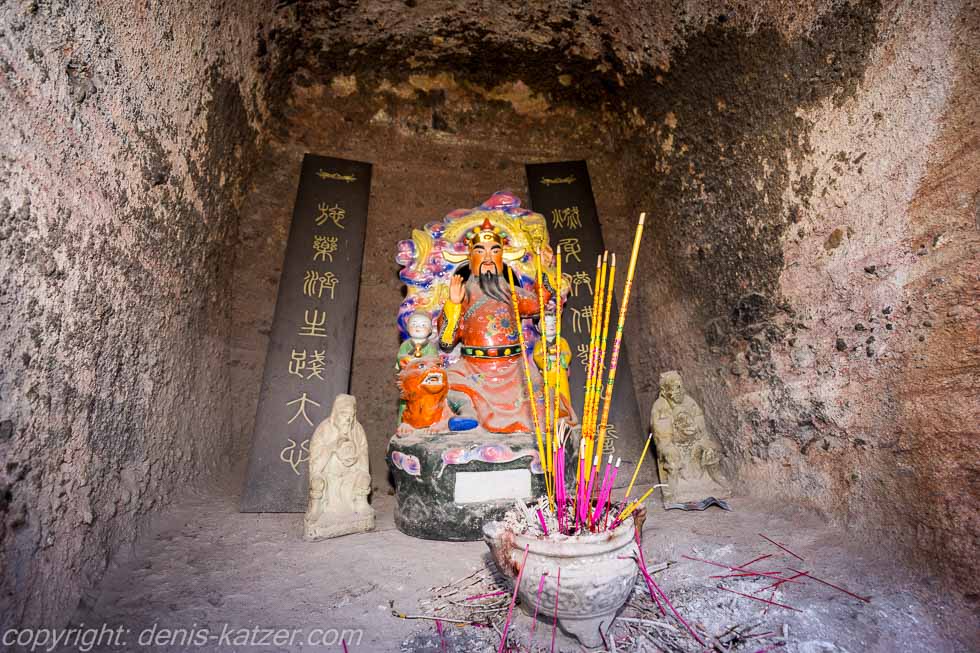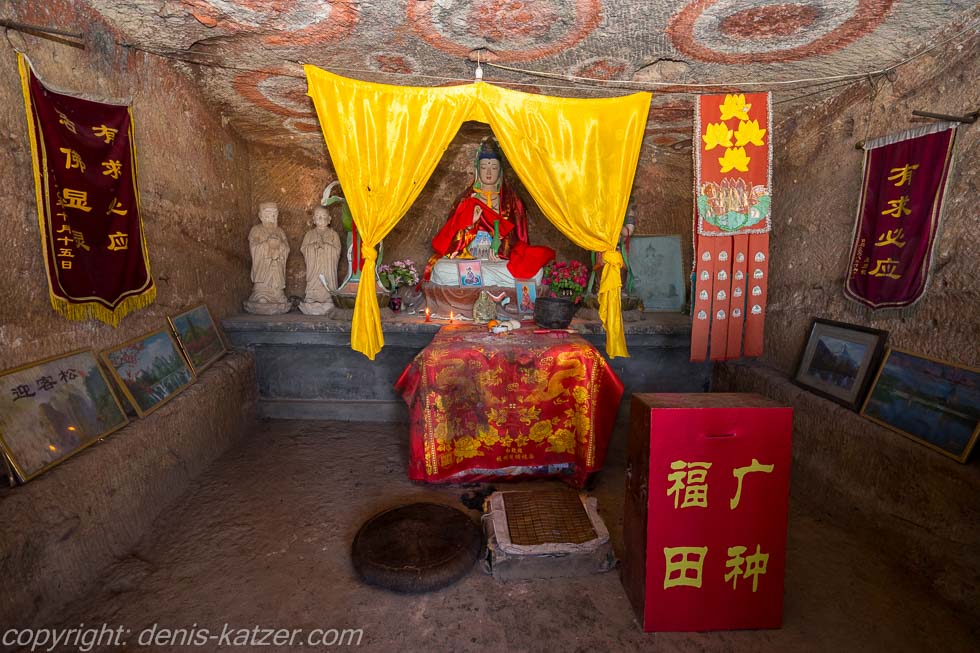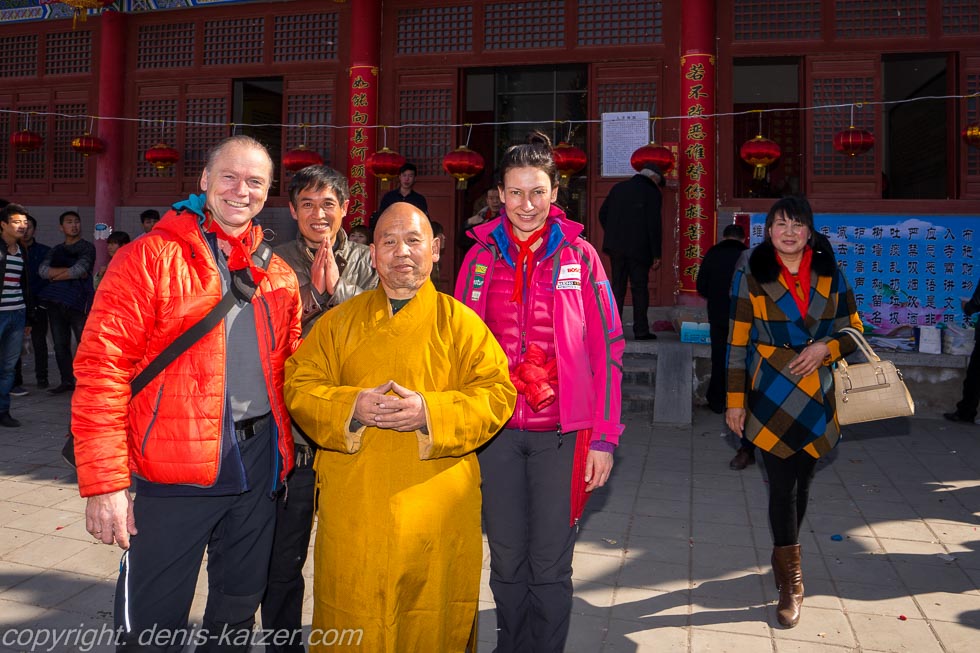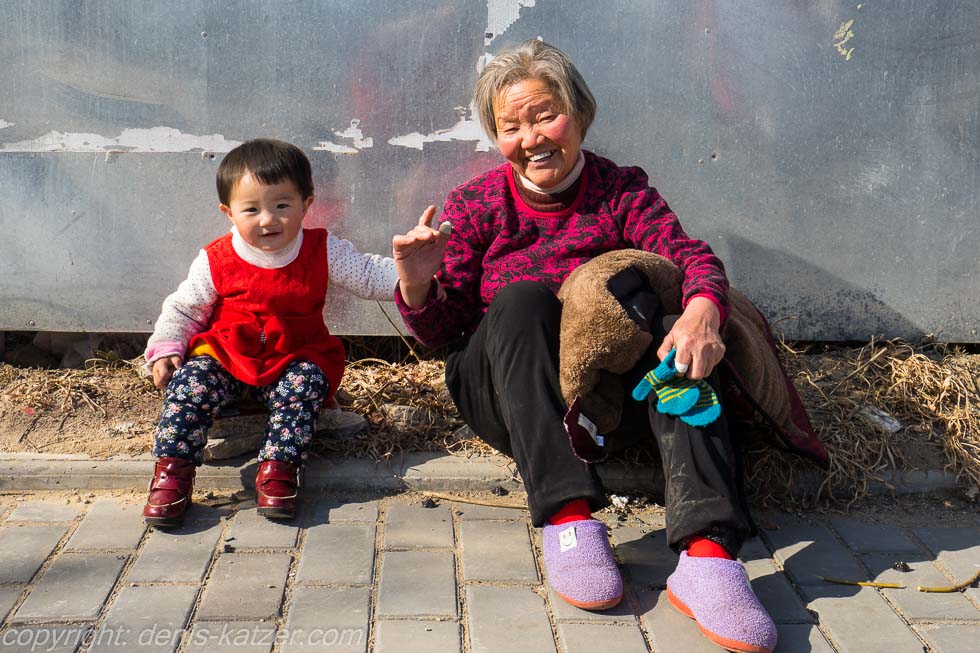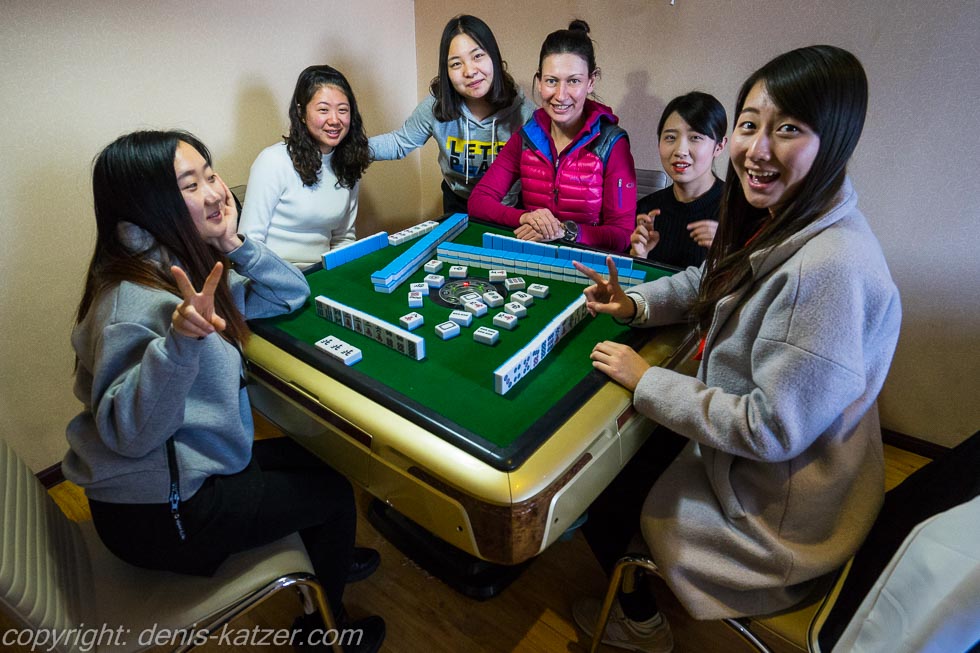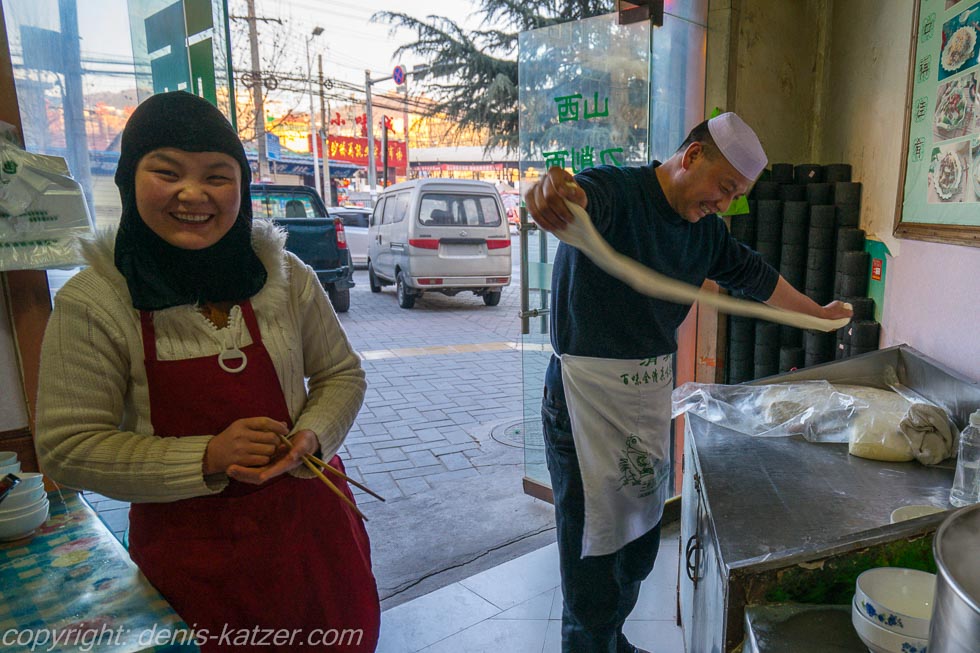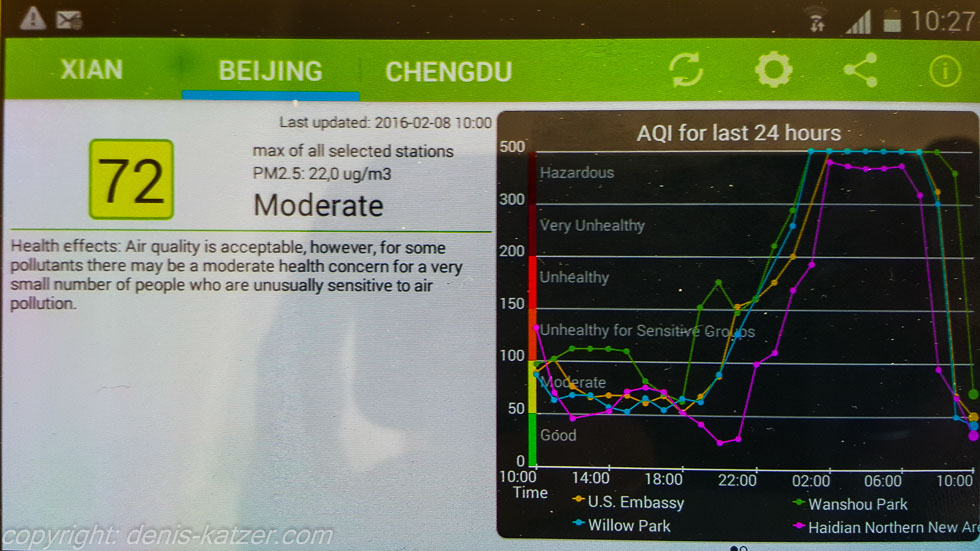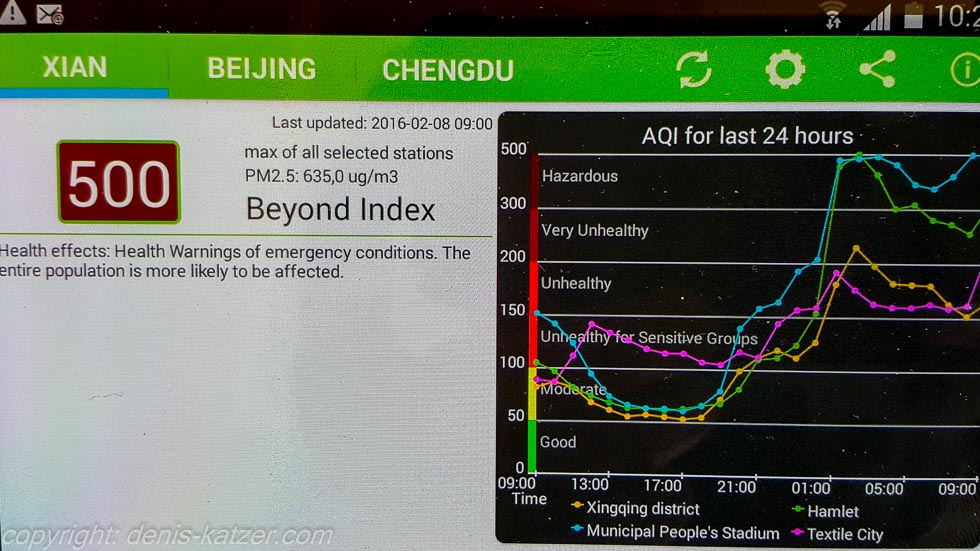
Sacrifices at the temples of the gods
N 33°52'33.8'' E 109°55'27.7''
Date:
08.02.2016 until 09.02.2016
Day: 224 – 225
Country:
China
Province:
Shaanxi
Location:
Shangluo
Latitude N:
33°52’33.8”
Longitude E:
109°55’27.7”
Total kilometers:
11,835 km
Maximum height:
542 m
Total altitude meters:
15.830 m
Sunrise:
07:32 am
Sunset:
6:15 pm – 6:16 pm
Temperature day max:
17°C
Temperature day min:
6°C
(Photos of the diary entry can be found at the end of the text).
Shortly after midnight we hear the sirens of the fire department. Apparently the excessive fireworks have claimed their first victims. At around 1:00 a.m. it becomes quieter, but as soon as the first rays of sunlight peek over the mountain ridges into the now completely smoky town, the driving out of ghosts and demons continues. While Tanja and Ajaci do their morning rounds, I do my daily yoga to keep fit during the rest days. Tock, tock, tock, knocks on the door. “Happy New Year!” Tanja greets me when I open the door and hands me our parcel from Germany, which we have been waiting for for over two weeks. “I can’t believe it,” I say in amazement. “The courier had just dropped it off downstairs when I got to the hotel. And you won’t believe it, it cost nothing.” “Nothing? No customs duties?” “No.” “It’s a godsend. And on the biggest public holiday, when almost every store is closed and hardly anyone is working,” I reply happily. “Yes, and the Chinese say that the whole year will be like the first day.” “Really?” “Yes, Claudia told me.” “Well then, here’s to a successful and wonderful 2016,” I cheer, dancing around our room. Ajaci is immediately happy and jumps up at me, whimpering excitedly and joyfully. It’s amazing how everything falls into place after we’ve seriously let go and resigned ourselves to having to wait another week for our important spare part. Does our mental attitude actually influence our external world? At the very least, it creates a reflection or, in other words, a kind of echo. If we had been massively annoyed, as mentioned in the past few days, we would certainly not have made a positive impression on our fellow human beings. And who knows if Claudia’s family would have invited us to their dinner?
At 11:00 a.m., we meet up with our hosts again for a traditional jiǎozi (dumpling) meal. Claudia explains that the dumplings are reminiscent of the gold and silver bags of old. “The more you eat, the more prosperity you will have in the new year.” After we have eaten our fill, Ren Fangzhen, Claudia’s mother, invites us to make offerings to the gods at the temples of Shangluo. “Do you want to go?” Claudia asks, “or do you need to prepare for your departure tomorrow?” “We would love to accompany you. We don’t want to miss out on a ceremony like this,” we answer decisively at short notice, even though we still have the aforementioned 1,100 km over massive mountains to the city of Chengdu ahead of us, and only have around 18 days left.
Claudia and her mother pick us up in the lobby around midday. We walk through the city together to look for a cab. The red pieces of paper from the fireworks are everywhere. In some areas, especially in front of stores, they form a veritable red carpet. Almost all stores and restaurants are closed. The atmosphere in the city is undoubtedly special. People are cheerful, even downright happy and euphoric. They go for a walk with their children and buy incense and fireworks at special stalls. Ren Fangzhen also buys large incense torches for the upcoming sacrifice. When Tanja wants to pay for her incense sticks, Claudia’s mother has already settled the bill. “Xie xie”, (thank you) we say thank you. “Bukeqi”, (you’re welcome) she replies in a friendly manner. We are also not allowed to pay for a cab to the temples on the outskirts of the city. “We have to stay together here. There are thousands of people coming and we could easily lose each other,” says Claudia. The crowds are indeed large. They stream en masse towards the rock face that borders the valley in which the town huddles. To the left and right of the path are numerous stalls selling fireworks, incense, soft drinks and souvenirs. A few hundred meters in front of us, firecrackers explode incessantly. Dark clouds of smoke rise into the sunny sky. In the stream of people, we flow towards the temples that seem to cling to the steep rock face in front of us. The closer we get, the louder it gets. When we reach the forecourt of the main temple, the atmosphere is almost ecstatic. The noise is almost unbearable, the air difficult to breathe. Our lungs are burning after just a few minutes. Men throw entire strings of firecrackers onto a square. Before they can light it with their lighter, the entire load goes up by itself. It has caught fire from the embers, because the entire floor is like a bubbling volcano. Hundreds of thousands of cannon shells, hundreds of meters of high-explosive shells, including countless unexploded ordnance, have turned the ground into an unpredictable minefield. And yet the courageous family men, businessmen, young people and anyone else who wants to help show the ghosts and demons how it’s done, head for the dangerous ground to ignite whole belts of explosive material. People cover their ears, run away, scream and shout. Scraps of paper, plastic and remnants of the firecrackers are hurled through the air. They hit me on the forehead because I’m trying to film the spectacle. Nobody takes his beautiful holiday outfit into consideration. Claudia, Tanja, Ren Fangzhen and many other visitors put bundles of smoking sticks, some as tall as a man, into the metal containers in front of them or simply throw them into the fire. The actually pleasant smell mixes with that of black powder. Coughing and gasping, those present scramble around. Then, after you’ve given the ghosts and demons a good thrashing, you enter the temple. There, too, there is a hustle and bustle. People kneel down in front of the Buddha statues and bow three times. Then comes the next one, and the next one. Loud, fast, colorful and shrill. Worship of the gods in Chinese. “Do you believe in God or do you have a special religion?” I ask Claudia as we leave the temple and climb up the steep steps to visit other temples. “Basically, we Chinese don’t have a uniform religious belief system like you do in Europe. Many villagers are rather superstitious and practise healing spells when someone is ill. Some go to fortune tellers to have their fortune predicted, and palm reading is still very popular. Exorcism is practiced in some regions. Geomancy and fenghui are practiced almost everywhere, even in big cities like Shanghai or Hong Kong. Somehow we have a mixture of everything. In the temple, you saw how many of my compatriots bowed before the Buddha statues. However, I am sure that only a few of them are pure Buddhists. We pray to many gods, but we don’t take it too seriously. The main thing is that they help us. So more and more people are also going back to the old folk beliefs such as Daoism and Confucianism. I like it when you don’t look at religions in such a stubborn way. That way you can choose the best from all of them. I’m even sure that our priests also worship several gods, at least that’s what I read recently. The important thing for me is that the gods help us to live a long life in prosperity and health.” “Hm, do you really believe in gods?” I wonder, because I think Claudia is a modern young woman. “I don’t really know. Sometimes I believe in them and sometimes I don’t. But if I pray to them, it can’t be wrong.”
Thoughtfully, I follow the superstitious believers up the steps. “Over there is the temple for people who want a child. Do you want to go there?” asks Claudia. “Nope, it’s not our primary wish,” I reply and ask what the temple opposite is all about. “That’s where our earth god lives. You can make a wish there for anything to do with the earth in the broadest sense. Even if you want a rich harvest, for your fields to be spared from storms and much more.” “Oh, this is our temple,” I say, because I feel called to be an ambassador of Mother Earth, so we visit it and pay our respects to the Buddha statues there. Which is your favorite god?” I want to know. “He lives in the students’ temple.” “Students have their own god?” “Yes, of course.” “And where is he?” “We have to go further up. Do you want to come with us?” “Sure,” Tanja and I answer, following her. On the way up, as so often, we are photographed incessantly and asked again and again if we would like to take a selfie. “It’s unbelievable. You’d think you were stars,” says Claudia. “Ha, ha, ha, that’s right. We’ve been like this for the last five months,” I explain. Then we pass the Temple of Money and Wealth. Ren Fangzhen immediately goes in to make a relatively large offering to the god of money. She then kneels down on the prayer cushion to bow to him three times and make her wishes. At the top, after the student temple, we follow a narrow path to more ancient caves dating back to the Han Dynasty (206 BC to 220 AD). Here, too, people pray, pay homage and make sacrifices. “What wishes are realized here?” I ask Claudia. “I don’t know, but there is a god for every taste and wish in these mountains.”
We arrive back at our hotel in the late afternoon after an eventful day. While Tanja plays Mah Jongg with Claudia and her friends, I prepare our bikes for the rest of the journey, fit the new drawbar bracket to the trailer, inflate all eight tires and oil the trailer axles…
The live coverage is supported by the companies Gesat GmbH: www.gesat.com and roda computer GmbH http://roda-computer.com/ The satellite telephone Explorer 300 from Gesat and the rugged notebook Pegasus RP9 from Roda are the pillars of the transmission.
